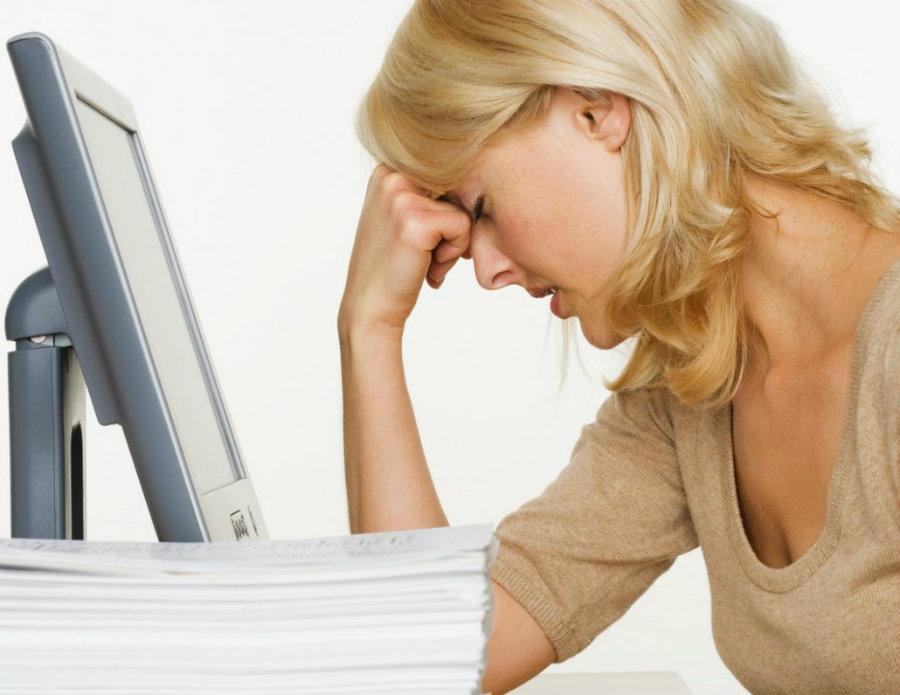The American Psychological Association published a survey that assessed how stressful the presidential elections have been for the American people. The results show that more than half of Americans feel the presidential elections have been very or somewhat a significant source of stress and it has affected all ages and all ethnic groups in the country.
The elections to vote who will be the next president of the United States are held tomorrow although the stress will not necessarily disappear. The survey is called “Stress in America: U.S. Presidential Election 2016, ” and it is a sneak peek of APA’s full survey data on American stress that will be published in early 2017.

The results were based on the answers of 3,511 adults living in the U.S., and the survey was conducted online. Harris Poll carried the research on behalf of the American Psychological Association in August and conducted 3255 interviews in English and 256 in Spanish to get better results from the Hispanic community.
The Stress in America document shows that 52 percent of Americans consider that the U.S. presidential election is a very or somewhat a significant source of stress in their lives and this affects their overall stress level. The survey discovered that those who found the elections stressing have an overall stress level of 5.1, where 1 is “little or no stress” and 10 is “a great deal of stress.” Those who did not think the elections are stressful reported an average stress level of 4.4.
Dr. Vaile Wright works with APA’s licensed psychologists who have told her that their clients are discussing the elections during their therapy sessions. Wright is APA’s Director of Research and added that patients are being affected by the negative and angry rhetoric that has characterized the 2016 presidential elections, Business Insider reports.
The elections have been more stressful for certain ethnicities. The survey points that Hispanic are the most stressed of the groups with 56 percent, compared to Whites and Native Americans that showed 52 percent of them had felt election-related stress. More than 45 percent Blacks and 43 percent Asians said they have been stressed by the current presidential elections as well.
Hispanic-Americans are the most targeted group when it comes to Trump and his campaign on immigration. If he wins, 11.3 million Latinos are at risk to be deported, which could explain why this group is the most stressed about the presidential elections.
But the rest of the groups are also part of the immigration stressed topic because Trump’s deportation plan and his wall to separate the U.S. from Mexico is going to be expensive for Americans regarding their race. Trump’s immigration plan would cost from $200 to $600 billion to American taxpayers, and the wall would be another $25 billion.
The U.S. presidential election has been almost equally stressful for Republicans and Democrats and the youngest and oldest of the American people
APA’s survey on stress related to the election shows that Republicans are the most affected by the stress caused by the presidential campaigns and the elections happening tomorrow. Almost 60 percent Republicans said that the elections are a very or somewhat a significant source of stress.
Democrats were nearly as stressed as Republicans with 55 percent, and 46 percent of independents said they too considered the 2016 presidential elections as a source of stress.
When it comes to ages, the survey found that Millennials (ages 19 to 37) and Matures (people 71 years old or older) are the most stressed groups. Almost 60 percent of Mature people considered the elections a significant source of stress and 56 percent of Millennials who were interviewed thought the same. Half of Boomers (ages 52 to 70) and 45 percent of Gen Xers (ages 38 to 51) also reported that the elections were stressful.
The American Stress report on the elections also considered Americans with Disabilities and discovered they are more likely to say the elections makes them feel stressed. The results show that six in 10 Americans with disabilities reported the elections were very or somewhat significant source of stress.
Dealing with stress related to the 2016 presidential elections
Dr. Asim Shah, vice chairman of community psychiatry at Baylor College of Medicine in Houston, recommends people not to worry about things that have not happened, even if the candidates have sworn they are going to carry whatever they have said during their campaigns. Shah told Los Angeles Times that few politicians are able to carry out most of their campaign promises because the U.S. political system is very resilient.
People need to stay away from politics if they feel they cannot handle any more stress related to the elections. Thus, they should stay away from politics in conversations, T.V., social media, and any other environment where the polls might show up.
APA’s survey on stress caused by the elections reports that one in four adults, which is about 38 percent, said that political and cultural discussions on social media cause them stress.
Additionally, adults using social media are more likely to be more stressed about the presidential elections than those adults that do not interact through social media. The results say 54 percent of Americans using social media are more stressed by the elections compared to the 45 percent that does not use them.
Source: APA
